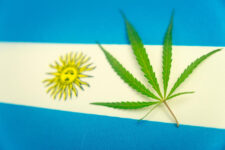Colombia presents a unique case. The country has partially legalized cannabis, distinguishing between its medical, industrial, and recreational uses. This article will explore Colombia’s current cannabis laws, highlighting the nuances and complexities of its legal framework, and providing insight into the country’s approach towards cannabis regulation.
Key Takeaways
- Medical and industrial cannabis are fully legal in Colombia.
- Recreational cannabis is decriminalized for personal use, but commercialization remains illegal.
- Recent legislative efforts to fully legalize recreational cannabis have been unsuccessful.
Historical Overview of Cannabis Regulation in Colombia
Cannabis in Colombia has a rich history intertwined with cultural and economic factors. Initially cultivated in the late colonial period for its industrial hemp, cannabis soon gained recognition for its psychoactive properties. By the 1920s, recreational use emerged, particularly in Atlantic ports like Barranquilla, prompting government restrictions in 1939 and 1946. The 1960s and 1970s saw a boom in production driven by North American traffickers, particularly in regions like the Sierra Nevada de Santa Marta and the Urabá peninsula.
A significant legal shift occurred in 1994 when the Constitutional Court decriminalized possession of cannabis for personal use. This was followed by further decriminalization in 2012, allowing possession of up to 20 grams, and in 2015, legalizing the cultivation of up to 20 plants.
The legalization of medical cannabis in 2015 marked a turning point, establishing a regulatory framework for its cultivation, production, and export. Colombia’s favorable climate and biodiversity have made it an attractive destination for cannabis investment, particularly in the medical sector. These developments reflect a gradual but significant shift in the country’s approach to cannabis, balancing control with recognition of its various uses.
Medical Cannabis in Colombia: Legal Provisions and Accessibility
Colombia’s journey towards legalizing medical cannabis culminated in 2015 with the establishment of a comprehensive regulatory framework. This framework governs the cultivation, production, sale, and export of medical cannabis products. Patients can access these products through prescriptions, with the option to cultivate their own plants for personal use. However, accessing medical cannabis remains a challenge, with limited doctors willing to prescribe it and few clinics available for dispensation.
The medical cannabis program in Colombia is distinct from the decriminalization of personal use. It focuses on pharmaceutical products and has approximately 3,000 registered patients as of 2020. The program’s success is partly attributed to Colombia’s ideal growing conditions and favorable climate, which have attracted significant investment in the cannabis industry. Despite these advancements, the medical cannabis landscape in Colombia is still evolving, with ongoing efforts to improve accessibility and awareness among both healthcare providers and patients.
Current Legal Status of Recreational Marijuana in Colombia
Recreational cannabis in Colombia occupies a complex legal space. While personal use and possession have been decriminalized, allowing individuals to possess up to 20 grams and cultivate up to 20 plants, commercial activities related to cannabis remain illegal. This dichotomy reflects the country’s cautious approach to recreational cannabis, balancing individual freedoms with broader societal and legal concerns.
Recent legislative efforts to legalize recreational cannabis, including a constitutional reform proposal in June 2023, faced significant challenges. The Senate rejected the proposal, reflecting ongoing political and social debates around full legalization. Despite this, the decriminalization of personal use represents a significant departure from previous stringent anti-cannabis laws. The current legal framework in Colombia thus presents a nuanced picture: while it acknowledges the personal use of cannabis, it stops short of embracing a fully legalized recreational market.
Possession, Cultivation, and Consumption: What’s Allowed in Colombia?
In Colombia, the laws governing cannabis possession, cultivation, and consumption are marked by clear but limited allowances. Individuals are permitted to possess up to 20 grams of cannabis and cultivate up to 20 plants for personal use. Consumption in public settings is allowed under these limits. However, any commercial activities, including selling and purchasing cannabis, are strictly prohibited.
Hemp cultivation and production operate under a separate legal framework established in 2017. This framework allows for the cultivation, processing, and commercialization of hemp and hemp-derived products, defining hemp as cannabis with a THC content of less than 1%. The regulations permit the use of THC in pharmaceutical products and CBD in various industries, including cosmetics, dietary supplements, and pharmaceuticals. These guidelines distinguish the permitted applications of THC and CBD in Colombia, reflecting the country’s efforts to harness the industrial and medical potential of cannabis while maintaining control over its recreational use.
What Future for Cannabis Legislation in Colombia?
The future of cannabis legislation in Colombia remains in a state of flux. Despite recent setbacks in legalizing recreational cannabis, there is growing momentum for change. The government’s ongoing efforts to establish a legal market for recreational marijuana and the growing consensus in the Senate suggest potential legislative developments. However, the path to full legalization is fraught with political, social, and economic complexities. As Colombia continues to navigate these challenges, it remains a key player in the global conversation on drug policy reform, with the potential for significant legislative changes in the near future.
To Sum Up
Is Marijuana legal in Colombia? Medical and industrial cannabis are legal, while recreational cannabis is decriminalized for personal use but not fully legalized. The country’s approach to cannabis legislation is evolving, with recent efforts indicating a potential shift towards more liberal policies. As Colombia navigates the complexities of cannabis laws, it remains a key player in the global conversation on drug policy reform. The future of cannabis legislation in Colombia is poised at a critical juncture, with the potential for significant changes that could reshape the country’s relationship with this controversial plant.









